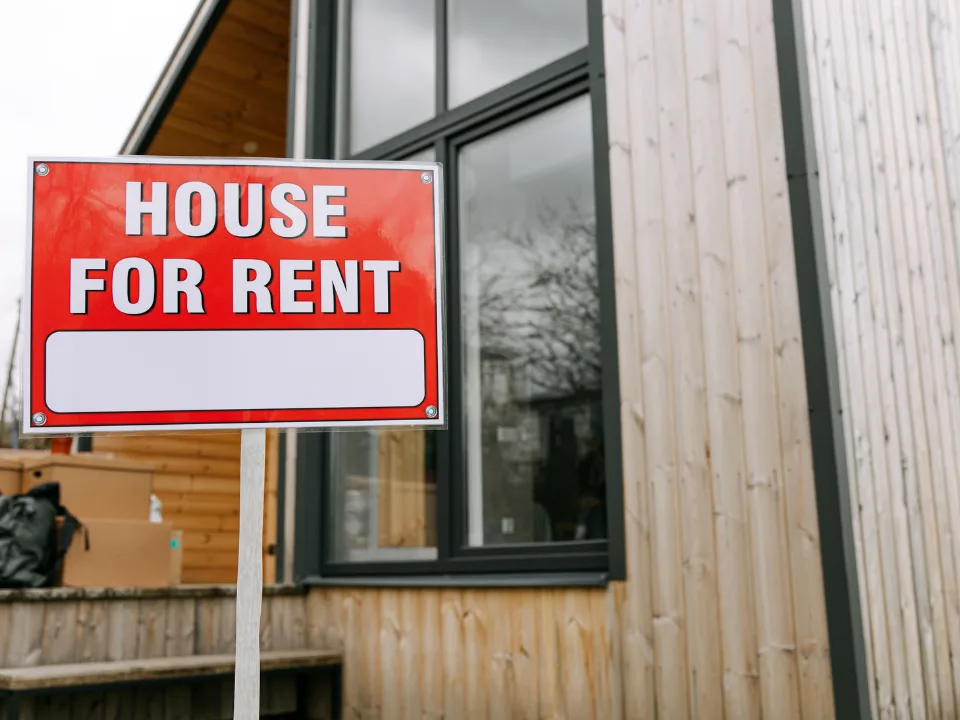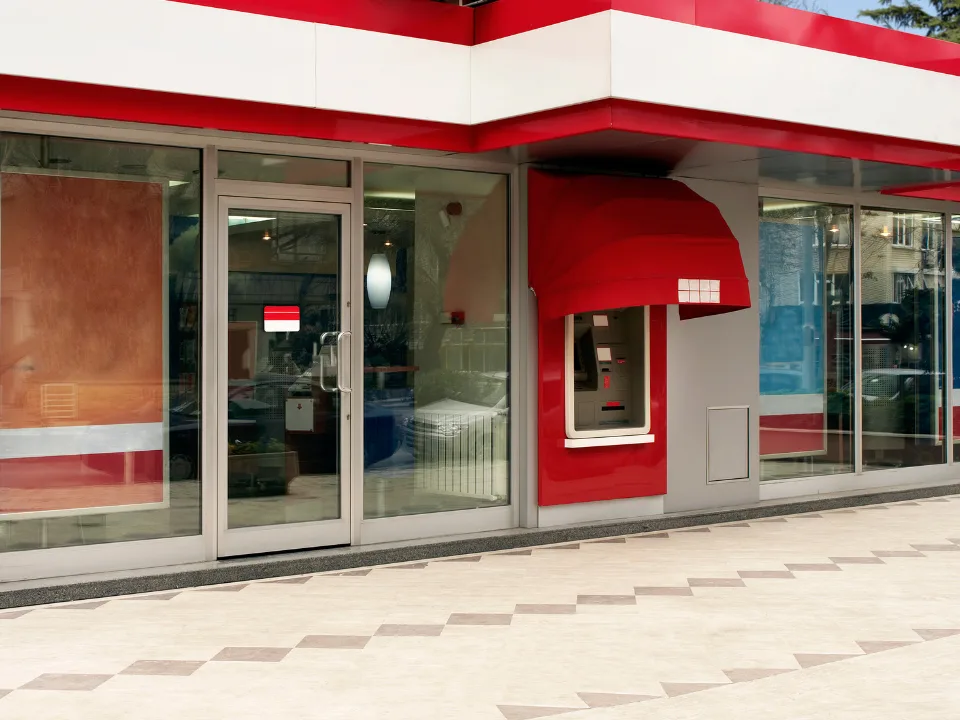Starwood and Blackstone Limit Investor Redemptions As Economic Concern Spreads
The Starwood REIT (STWD), also known as SREIT, is limiting investor redemptions after November withdrawals exceeded the firm’s monthly limit. With $125B in AUM, it’s the second-largest non-traded REIT after Blackstone Trust (BXMT), or BREIT, which also capped redemptions in November for the same reasons.
Good morning. In today’s email: Investor calls to cash out of non-traded REITs are quickly spreading as tough times lead to more paper hands. Wynn Resorts finally sells Boston Encore Harbor to Realty Income in a $1.7B sale-leaseback deal. Meanwhile, after her re-election, NY Governor Kathy Hochul is back on the war path to build more affordable housing in NYC.
Shoutout to today’s sponsor, W. M. Gibson. For anyone that needs some comfortable kicks to rock this holiday season, they’ve got you covered.
⚡ Want to share the CRE Daily? Invite your friends to sign up here.
🎧 Podcast of the Day: How do you invest in America’s most challenging housing market? That’s the question Anon M. Stanfield, who has acquired over $200M in affordable housing projects in Texas, answers on this episode of The FORT with Chris Powers.
REINING IN REDEMPTIONS
Starwood, Like Blackstone, Limits Investor Redemptions From Big Real Estate Fund
The Starwood REIT (STWD), also known as SREIT, is limiting investor redemptions after November withdrawals exceeded the firm’s monthly limit. With $125B in AUM, it’s the second-largest non-traded REIT after Blackstone Trust (BXMT), or BREIT, which also capped redemptions in November for the same reasons.
Withdrawals from nontraded REITs

Robert A. Stranger & Co. / WSJ
Patience, young Padawan: Both SREIT and BREIT allow investors to withdraw 2% of their net investment value monthly. But this November, SREIT received repurchase requests equal to 3.2% of NAV. SREIT only fulfilled 63% of these requests, informing unlucky investors to try again in December. Redemption limits exist to prevent a sudden surge of requests from forcing the firm to liquidate lots of real estate.
Sell high while you still can: So far this year, non-traded REITs have outperformed publicly traded REITs. Unsurprisingly, many wealthy investors in non-traded REITs are trying to cash out while the going is still good, leading to a surge of redemption requests. Nobody wants to leave money on the table, especially with an impending recession on the horizon.
➥ THE TAKEAWAY
Search for yield: The rise in cash-out requests comes as more investors and financial firms turn their back on real estate. SREIT and BREIT are probably too big to fail, and will likely survive whatever 2023 has in store. But redemption limits may spook prospective investors who desire higher yields. And as rates rise, more liquid types of investments—like Treasuries, investment-grade bonds, and mortgage-backed securities—may start looking more attractive than CRE.
A Message From W. M. Gibson
It’s time that your shoes look as good as you
Besides, Christmas is right around the corner…🎁
And there’s no better gift than The OG loafers from W.M. Gibson. They’ve created the world’s most comfortable dress shoes, made with A-grade leather sourced from one of the world’s leading tanneries.
These classic, stylish loafers are perfect for both casual and professional wear. Not only does my wife love the way these lux loafers look—but she was also shocked they’re priced under $500. Only downside is they constantly sell out – get yours today before they’re gone.
DEAL OF THE DAY
Wynn Completes $1.7bn Encore Deal For Quick Cash to Aid Expansion Plans
Wynn Resorts (WYNN) has finally completed its sale of Encore Boston Harbor’s property assets to Realty Income (O) for $1.7B. The sale-leaseback deal will boost Wynn’s $4.4B liquidity while adding to Realty’s expansive portfolio of over 11.7K properties. It’s a big deal.
Just can’t quit: Wynn will still operate Encore via a 30-year, $100M deal, which the company can renew for another 30 years when the contract runs out. Wynn’s also holding onto a 13-acre plot of land on the east side of Broadway that’s slated for parking and other non-gaming amenities.
Star of the show: Encore Boston Harbor is killing it right now. The casino led other Massachusetts casinos in revenue by a huge margin this October, raking in $62M while the runner-up, MGM Springfield, net just $22.8M. Encore also paid $15.5M of the total $27.92M in taxes made by the state of MA last year. So if residents don’t give them money, they might at least send a thank-you note.
➥ THE TAKEAWAY
Encore encore: Wynn’s doing well. But the company needs more cash than they have on hand, thanks to the recent passage of new regional gaming laws. The sale-leaseback agreement gives Wynn some wiggle room as they prepare to expand, partnering with Related Companies on a bid for a Manhattan casino license—perhaps for another Encore?
HOT FOR HOUSING
Kathy Hochul Eyes NYC Zoning Laws in Push For Affordable Housing
Secure in her re-election as NY governor, Kathy Hochul plans to redouble her efforts to address NYC’s affordable housing crisis. But since she wasn’t able to do it during her last term, some wonder just how she plans to pull it off this time.
Sights on segregation: Hochul has stated her administration will focus on communities with zoning policies that block housing and encourage continued segregation. She explained that because NYC’s employment and general economic development are looking good, and since the city’s already a leader in tenant rights and affordable housing per capita, she plans to focus more on zoning laws.
More like ‘No-chul’: In her previous term, legislators didn’t exactly love Hochul’s plans. For example, she tried to pass legislation requiring localities to allow accessory dwelling units on lots zoned for single-family housing—and got smacked down hard. Ditto for her pitch of the tax incentive 485w, which would have replaced the recently expired 421a.
➥ THE TAKEAWAY
Broadened horizons: Hochul’s likely to try again with a replacement for 421a. She may also attempt to remove the cap on the city’s residential floor-area ratio (FAR). But neither got into the budget last year, so the forecast isn’t great. Hochul’s also likely to propose legislation that would make it easier to convert defunct office space into housing. And given the tumbling office market, this push is likely to meet less resistance.
📰 Editors’ Picks
-
No love for landlords: Democrats are cracking down on corporate landowners as the supply of affordable housing stays low and public perception of landlords worsens.
-
The Ford of flipping: 31-year-old real estate mogul Sean Kia grew his $2B portfolio into a $7.5B empire in just three years by applying Henry Ford’s business model to real estate.
-
Beggars can’t be choosers: The New Orleans rental market remains strong for landlords and developers as a shortage of affordable homes traps more tenants in rental arrangements.
-
Big Data’s big holdup: Residents of Prince William County, VA have filed a lawsuit to halt the development of what could be the country’s largest data center hub upon completion.
-
No business traveling: The past 3 months have seen a surge in corporate travel, but the current economic downturn threatens to nip the new golden age of business travel in the bud.
-
West coast best coast: California policymakers recently passed zoning measures that make the construction of affordable housing feasible. New York City should take note.
🤝 Deals & Dealmakers
-
The Vantage advantage: Vantage Data Centers secured a $350M loan from Societe Generale to build a 480 KSF data center complex in Santa Clara, CA.
-
Moon shot: 3D printing company Icon just won a $57.2M contract with NASA to build lunar infrastructure like roads and habitats.
-
Out of the box: Plant Prefab, a developer of sustainable prefabricated homes, just secured $42M in funding to put up green affordable housing.
-
Pros and Conn: First National Realty bought Bishops Corner, a 259 KSF retail center in West Hartford, CT, for $76M.
-
Blackstone goes brrr: Blackstone Inc. (BX) is going north and buying up industrial properties in Canada in hopes that rising demand for warehouse space will pay off in spades.
-
Bold, big Bedrock: The developer Bedrock has joined forces with the City of Cleveland to build a 3.5 MSF development of adaptive reuse projects on the Cuyahoga Riverfront.
📈 CHART OF THE DAY

CoStar
The blended average capitalization rate across the four main property types has slightly inverted against BBB-rated corporate bonds. In the past, the narrower the premium between cap rates and BBBs, the more investment property sales decline.
Although the premium between BBB-rated corporate bonds and cap rates will likely revert to positive next year, the change spells trouble ahead for commercial real estate transactions.
What did you think of today’s newsletter? |
DISCLAIMER: None of this is financial advice. This newsletter is strictly educational and is not investment advice or a solicitation to buy or sell any assets or to make any financial decisions. Please be careful and do your own research.


















